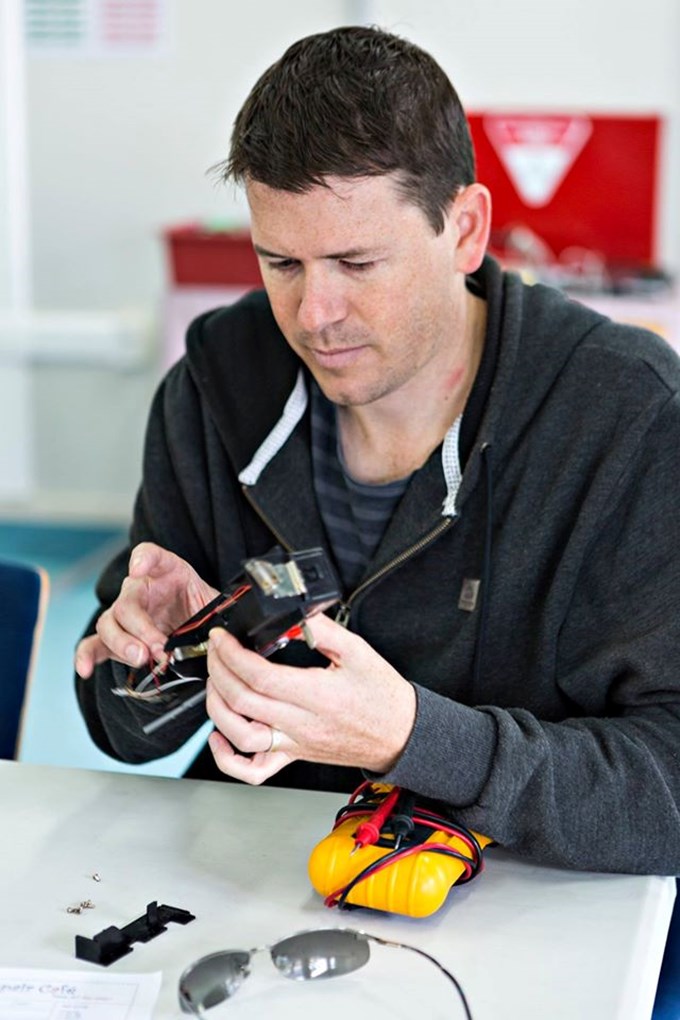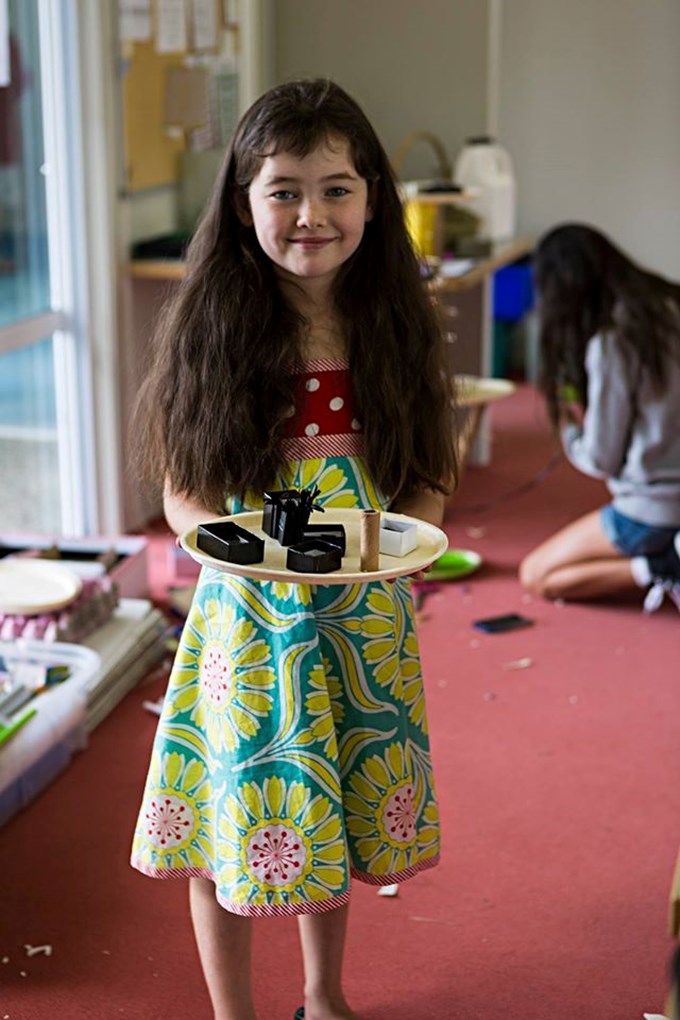Repair Café, a movement helping people fix things rather than send them to landfill, is set for further expansion thanks to funding from Auckland Council.
According to recycle.co.nz, 2.5 million tonnes of waste is buried in New Zealand landfills every year. A considerable amount of this waste is avoidable. Data from Auckland Council’s inorganic collection shows that residents throw away a large number of items that could have been reused after a simple repair.
The trouble is, many people don’t have the skills to repair things themselves.
This is where Repair Cafés come in. It holds free pop-up community events where volunteer repair experts are connected with those who have broken and damaged items.
And, thanks to a $40,000 grant from Auckland Council’s Waste Minimisation Innovation Fund (WMIF), more people should be able to run Repair Cafés in their communities in the near future.
Saving money and reducing waste
Stephen McLuckie, ANCAD Community Development Coordinator, helped establish the Bayswater Repair Café which launched last year.
He says Repair Cafés attract people from all walks of life with a shared motivation to save money, connect with other local people and minimise waste.
“Our first event was attended by 100 visitors who brought 50 items to be repaired. Of those, 29 could be fixed – saving our visitors around $5000 in three hours,” he says.
Often these simple interactions can be a catalyst for behaviour change.
“When people see how simple it can be to fix something they experience a mindset shift. It becomes more than just taking something in to be repaired; it’s an exchange of skills and knowledge. People come away with a new appreciation for their belongings and are often inspired to learn the skills so they can repair things themselves.”
Stephen says the heart of the initiative is the local people who share their expertise in sewing, electrical and bike repairs with others. These volunteers come from all walks of life and range from business people, local Mums and Dads and retired people.
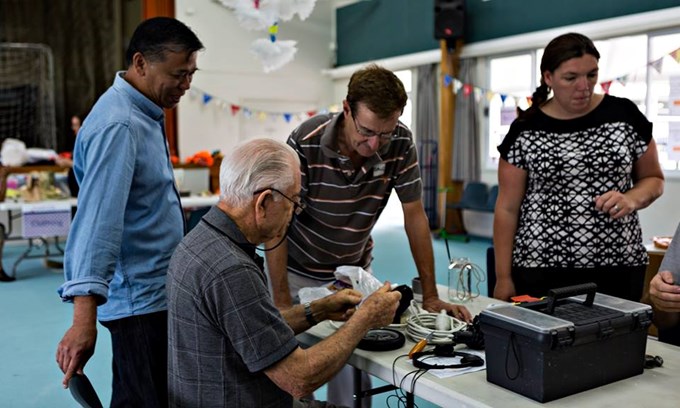
Expanding across Auckland
Repair Cafés have begun in the Auckland suburbs of Pt Chevalier, Bayswater, Grey Lynn, Sandringham and Birkenhead. A $40,000 grant from Auckland Council’s Waste Minimisation Innovation Fund (WMIF) is enabling organisers to provide support to groups interested in setting up an event in their community.
Clr Penny Hulse, Chair of the Environment and Community Committee, is delighted that WMIF funding can help bring Repair Cafés to more communities.
“The Repair Cafe movement is one of those quietly powerful initiatives that brings out the best in people. We constantly hear about people being time-poor, yet in our communities we see experts volunteering to share their knowledge with those open to receiving it,” she says.
“It’s a fantastic way of bringing people together and reducing the amount we send to landfill.”
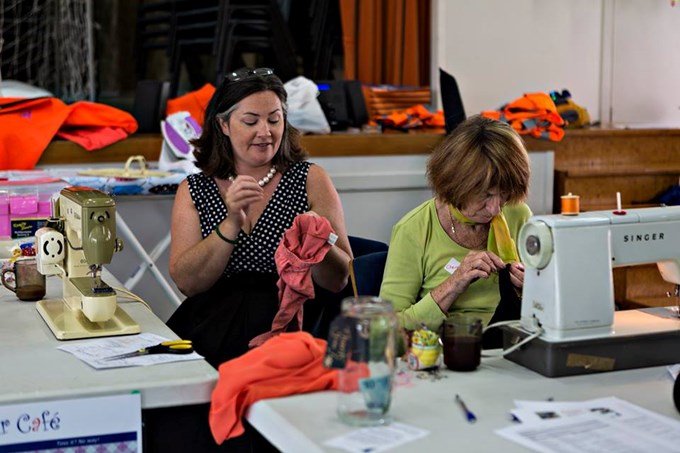
Want to set up a Repair Café?
The Repair Café Auckland team is based at Global Action Plan Oceania’s Devonport Community Recycling Centre and they’re keen to hear from anyone interested in running an event.
Stephen says council funding is being used to develop a manual and event kit to support community groups stage a Repair Café event in their areas.
“We are able to help with shared resources such as tools, advice on how to run an event and are pulling together a volunteer database. While we can’t actually run an event for someone we can certainly help them with setting one up.”
If you’re interested and would like more information please contact repaircafeauckland@gmail.com
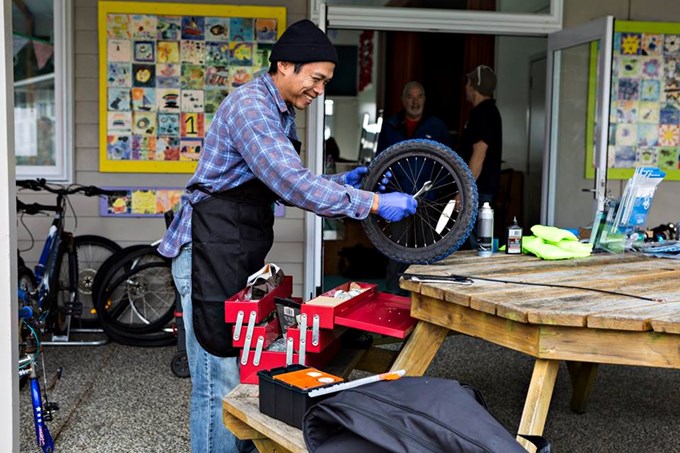
About WMIF
The WMIF fund provides up to $500,000 a year to seed innovative waste solutions from businesses, iwi/Maori, education and community groups.
These grants are funded through a levy of $10 per tonne on all waste sent to landfill, and support new activities which reduce waste.

